A CV for a web developer role should highlight the technical expertise, work experience, educational background, and significant achievements of the candidate. Resumes must present how a candidate can support a company in achieving its goals and objectives. A successful web developer’s resume requires a proper understanding of the dos and don’ts plus the job description for which you’re crafting your resume.
Plan Carefully Before Writing A Resume
A carefully planned web developer resume should be readable, concise, and easy to navigate, with popped-out headings for each section, containing the most relevant information at the top. Stick to these rules to enable your resume to land a job for you:
- Omit irrelevant information according to the job description.
- Order the resume sections by the job opportunity’s relevance
- Use reverse chronological order for any section organised by dates
Analyze the Job Description
Generic resumes are rejected mainly by the recruiters’ Applicant Tracking Systems (ATS). You must tailor your resume to the specific job description before applying for a job. The skills and requirements of a position will tell you what to include in your resume. Emphasize the critical expertise on your resume by using action verbs mentioned in the job description.
Familiarize Yourself With the Company
Customize your resume to meet the recruiter’s needs to make it stand out. To do this, you must familiarise yourself with the company before applying. Check their website, social media, and blog posts to gain familiarity.
Purpose of Your Resume
A resume is your paper version that pitches your expertise and experience to an employer. It tells a story about your achievements and experiences to give the employer an idea of your capabilities. A strong resume helps you land an interview, which is the primary purpose of any resume.
What To Include in Your Resume For A Web Developer Role?
For a web developer resume, you should include the following headers:
1. Contact Header
Like every other resume, a web developer resume opens with a contact header, which includes your:
- Name
-
- Professional Branding Statement: A brief statement depicting who you professionally are or what you do, ex: Front-end Web Developer
- Contact Number
-
- Address (you can omit it when applying for remote jobs)
- Portfolio URL: A collection of all your previously accomplished, worth-mentioning web development projects.
- LinkedIn URL or QRC
- GitHub URL
However, be comprehensive and omit personal details like date of birth, religion, nationality, etc.
2. Profile Summary
This paragraph comprises only two to four sentences where you make your first impression by briefly introducing yourself, your achievements, and your competencies. It would help if you tailored your web development profile according to the job description. Remember that this is where you can inspire your recruiter by explaining why you’re a good fit for the position.
3. Web Development Experience
It is a listicle section where you must add your work experience in reverse chronological order, starting from the most recent experience. Every experience must include your job title, employer name, location, and tenure. Do not forget to add the job responsibilities, spanning at least four or five bullet points. Focus on what you achieved during your tenure rather than mentioning daily tasks or job descriptions.
Quantify your accomplishments, where possible, and use numbers to visualise the value and impact of your work to the employer. Numbers add credibility and validity to exhibit your proven track record as a web developer. Finally, start each point with meaningful action verbs showing your contributions to a project or team.
4. Technical Expertise
Web development is a highly technical profession which requires a specific skill set for each job role in the development industry. Therefore, you must include your most vital but relevant technical skills, such as front-end web programming languages, website designing tools, back-end web development frameworks, coding libraries, knowledge of databases, payment gateways, version control systems, and more. Employers will give a developer with the right expertise and working knowledge for the specific role an interview chance.
However, be picky about what you add to your web developer resume, rather than dumping every web development skill you possess. Finally, don’t forget to add some relevant project links if you don’t have a portfolio. Adding projects is an excellent approach to showcase your previous work and your passion for web development.
5. Academic Education
List your academic education, including degrees, diplomas, and professional certifications, in reverse chronological order, starting from the highest level of education. You must include your degree title, institution name, programme tenure, and final scores earned (if they’re worth mentioning). Additionally, you can wow the recruiter by adding relevant coursework, boot camps, scholarships, or any worthwhile online course from an authentic source like Udemy, Coursera, or Google Certifications.
6. Accomplishments
This section is required in the resumes of experienced web developers, where they showcase their achievements, including awards, badges, and volunteer activities. You can add more value to your resume by including organisational memberships depicting your commitment to your profession. Moreover, this section can be utilised to exhibit any recognition earned for your past web development projects.
Best Practices To Remember
Keep these best practices in mind before sending your resume for a web developer role:
- Draft A Tailored Cover Letter Before Every Application: A unique cover letter is essential to accompany your resume for value addition. Use it to include the information you cannot mention in your resume due to its set pattern.
- Make a Well-Structured Resume: Use a simple resume design stick with a maximum of two fonts, and have adequate white spaces to navigate your resume.
- Debug And Proofread Your Resume: Before sending your application to any employer, proofread your web development resume to debug for any grammatical errors or typos. You can also use specific software to do it for you.
- Redevelop Your Digital Public Presence: Ensure you clean up your public profiles online to remove any offensive material obstructing your job hunt. It is a common practice for recruiters to do preliminary research by typing your name into Google to see what pops up.
Simplify your job hunt by registering at Jobs N Recruitment. Browse through relevant job opportunities around the world and land your dream job. We wish you a happy job hunt!












